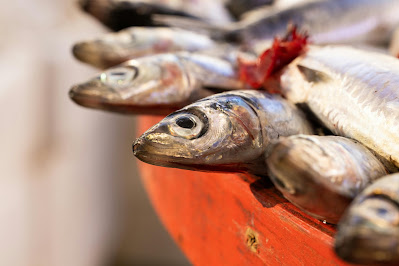Today, we're delving deep into the remarkable organ that often doesn't get the recognition it deserves - the liver. Nestled securely in the upper right part of your abdomen, your liver is a powerhouse of biochemical wizardry that plays a vital role in keeping you healthy and thriving. In this blog post, we'll explore the liver's functions, why it's crucial to care for it, and provide some insights into maintaining its optimal health.
Understanding the Liver's Functions
The liver is one of the largest and most versatile organs in the human body, with a multitude of functions. Let's take a closer look at some of its key roles:
1. Detoxification: Your liver acts as a natural detoxifier, filtering out toxins, drugs, and harmful substances from your bloodstream. It neutralizes and excretes these toxins, helping to keep your body clean and functioning optimally.
2. Metabolism: It's no exaggeration to say that your liver is a metabolic powerhouse. It regulates the levels of glucose, fats, and amino acids in your bloodstream, ensuring your body gets the energy and nutrients it needs.
3. Storage: The liver stores essential nutrients such as vitamins, minerals, and glycogen, releasing them into the bloodstream when required. This storage function provides your body with a backup supply of energy and nutrients.
4. Blood Clotting: The liver synthesizes clotting factors and proteins that are essential for preventing excessive bleeding. It ensures that your blood coagulates appropriately when necessary.
5. Digestion: Bile production is another vital function of the liver. Bile is essential for digesting fats and aiding in the absorption of fat-soluble vitamins, such as vitamins A, D, E, and K.
BEST SUPPLEMENT FOR YOUR LIVER HERE!
Why Liver Care is Crucial
Now that we understand the critical roles of the liver, it's evident why taking care of this organ is essential. Neglecting your liver's health can lead to various health issues, including liver diseases, impaired metabolism, and toxin buildup. Here are some practical tips to maintain optimal liver health:
1. Balanced Diet: Incorporate a diet rich in fruits, vegetables, lean proteins, and whole grains. These foods provide essential nutrients and antioxidants that support liver health.
2. Stay Hydrated: Drinking an adequate amount of water helps your liver flush out toxins more efficiently.
3. Limit Alcohol: Excessive alcohol consumption can damage the liver over time. Moderation is key.
4. Exercise Regularly: Physical activity promotes better blood flow and helps in overall metabolic health.
5. Minimize Processed Foods: High-sugar and high-fat processed foods can strain the liver. Opt for whole, unprocessed foods whenever possible.
6. Maintain a Healthy Weight: Obesity can contribute to liver problems. Achieving and maintaining a healthy weight is crucial.
Supplementing Wisely
While a balanced diet is the cornerstone of liver health, some individuals may consider supplementing to support their liver. If you choose to explore supplements, it's vital to do so cautiously and consult with a healthcare professional. They can help you determine if a specific supplement is appropriate for your needs.
One supplement that has gained attention in recent years for its potential liver benefits is milk thistle. Milk thistle contains a compound called silymarin, known for its antioxidant and anti-inflammatory properties, which may aid in liver protection. However, please remember that supplements should never be a substitute for a balanced diet and a healthy lifestyle.
BEST SUPPLEMENT FOR YOUR LIVER HERE!
Well... wrapping up!
Your liver is a remarkable organ that plays a pivotal role in your overall health. Taking steps to care for it, such as adopting a balanced diet and lifestyle, can go a long way in promoting a healthy liver. If you're considering supplements, consult with a healthcare professional for guidance tailored to your individual needs. By nurturing your liver, you're investing in a healthier, happier you. Here's to the unsung hero of our bodies - the liver!
REFERENCES:
Chiang, J. Y. (2013). Bile acid metabolism and signaling. Comprehensive Physiology, 3(3), 1191-1212.
Li, C., Pan, Z., Xu, T., Zhang, C., Wu, Q., Niu, B., ... & Wei, H. (2013). Role of miR-144-3p in regulation of hepatic genes by transient neonatal iron deficiency in rats. The Journal of Nutritional Biochemistry, 24(6), 1110-1118.
Lustig, R. H. (2013). Fructose: it's “alcohol without the buzz”. Advances in Nutrition, 4(2), 226-235.
Makarova, E. N., Stenkova, A. M., & Arutyunyan, A. V. (2008). Blood coagulation in liver diseases. Klinicheskaia Laboratornaia Diagnostika, (6), 25-30.
Schattenberg, J. M., Galle, P. R., & Schuchmann, M. (2015). Apoptosis in liver disease. Liver International, 35(S1), 29-35.
Teli, M. R., Day, C. P., Burt, A. D., Bennett, M. K., & James, O. F. (1995). Determinants of progression to cirrhosis or fibrosis in pure alcoholic fatty liver. The Lancet, 346(8981), 987-990.
Vuppalanchi, R., Chalasani, N., & Nonalcoholic Fatty Liver Disease NASH (2013). Hepatology, 57(4), 1263-1273.





No comments:
Post a Comment